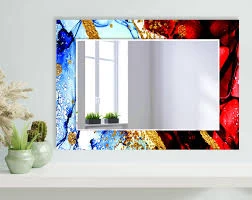

Understanding Insulated Glass Unit Prices Factors and Trends
Insulated Glass Units (IGUs) play a crucial role in modern construction and energy efficiency. These products, which typically consist of two or more panes of glass separated by a space filled with gas such as argon or krypton, provide thermal insulation, reduce noise, and enhance aesthetic appeal. As the demand for energy-efficient buildings continues to rise, understanding the factors influencing IGU prices becomes essential for builders, architects, and homeowners alike.
Key Factors Influencing IGU Prices
1. Material Quality The type of glass used in the IGU significantly impacts its price. Low-emissivity (Low-E) glass, which has a special coating that reduces heat transfer, is more expensive than standard clear glass. Other materials, such as tempered or laminated glass, also add to the cost due to their enhanced safety and durability properties.
2. Thickness and Size The dimensions of the IGU are critical in determining the price. Larger units and those with thicker glass tend to cost more due to the increased amount of raw materials used and the complexity of manufacturing. Custom sizes will also usually incur higher costs compared to standard dimensions.
3. Gas Fill The type of gas that fills the space between the panes can affect the unit price. While standard IGUs may use air as a spacer, those using argon or krypton gas offer better thermal insulation and are generally more expensive. The choice of gas should align with the intended energy efficiency goals of the building project.
4. Manufacturing and Labor Costs The cost of production and labor can vary significantly based on geographic location and the methods employed in manufacturing IGUs. Automated assembly lines may reduce costs, while custom, handcrafted units often come with a premium price tag. Additionally, labor shortages or increased manufacturing costs can impact overall pricing.

5. Energy Ratings IGUs are often rated for energy efficiency, measured through metrics such as U-factor and Solar Heat Gain Coefficient (SHGC). Units with better ratings typically command higher prices, as they contribute to significant energy savings over time. Homeowners and builders investing in high-performance IGUs often prioritize long-term savings over initial costs.
6. Market Trends The market for IGUs is influenced by supply and demand dynamics. Economic shifts, construction industry trends, and availability of raw materials can lead to fluctuations in prices. For instance, during a housing boom, increased demand can elevate prices, while a downturn may lead to competitive pricing as manufacturers seek to maintain sales volumes.
Current Pricing Trends
As of late 2023, the price range for insulated glass units varies widely based on the factors mentioned. On average, homeowners might expect to pay between $20 to $70 per square foot for standard IGUs, with premium options exceeding this range. It's essential for buyers to obtain multiple quotes from suppliers and compare the specifications of each unit to ensure they are making an informed decision.
In addition to traditional fixed windows, the rising popularity of specialized shapes, double-hung windows, and sliding doors featuring IGUs has introduced further complexity in pricing. Custom configurations can lead to higher costs, but they also provide unique aesthetic appeal and functionality that can enhance a property's value.
Conclusion
The price of insulated glass units is influenced by a variety of factors, including material quality, size, gas fill type, manufacturing costs, energy ratings, and market conditions. With the growing emphasis on energy efficiency and sustainable building practices, IGUs have become a pivotal element in construction projects across the globe. For anyone considering the installation or replacement of IGUs, understanding the pricing landscape and variables at play is crucial for making value-driven choices that meet their energy efficiency and aesthetic needs. Ultimately, investing in high-quality insulated glass can lead to substantial benefits in comfort, energy savings, and property value over time.